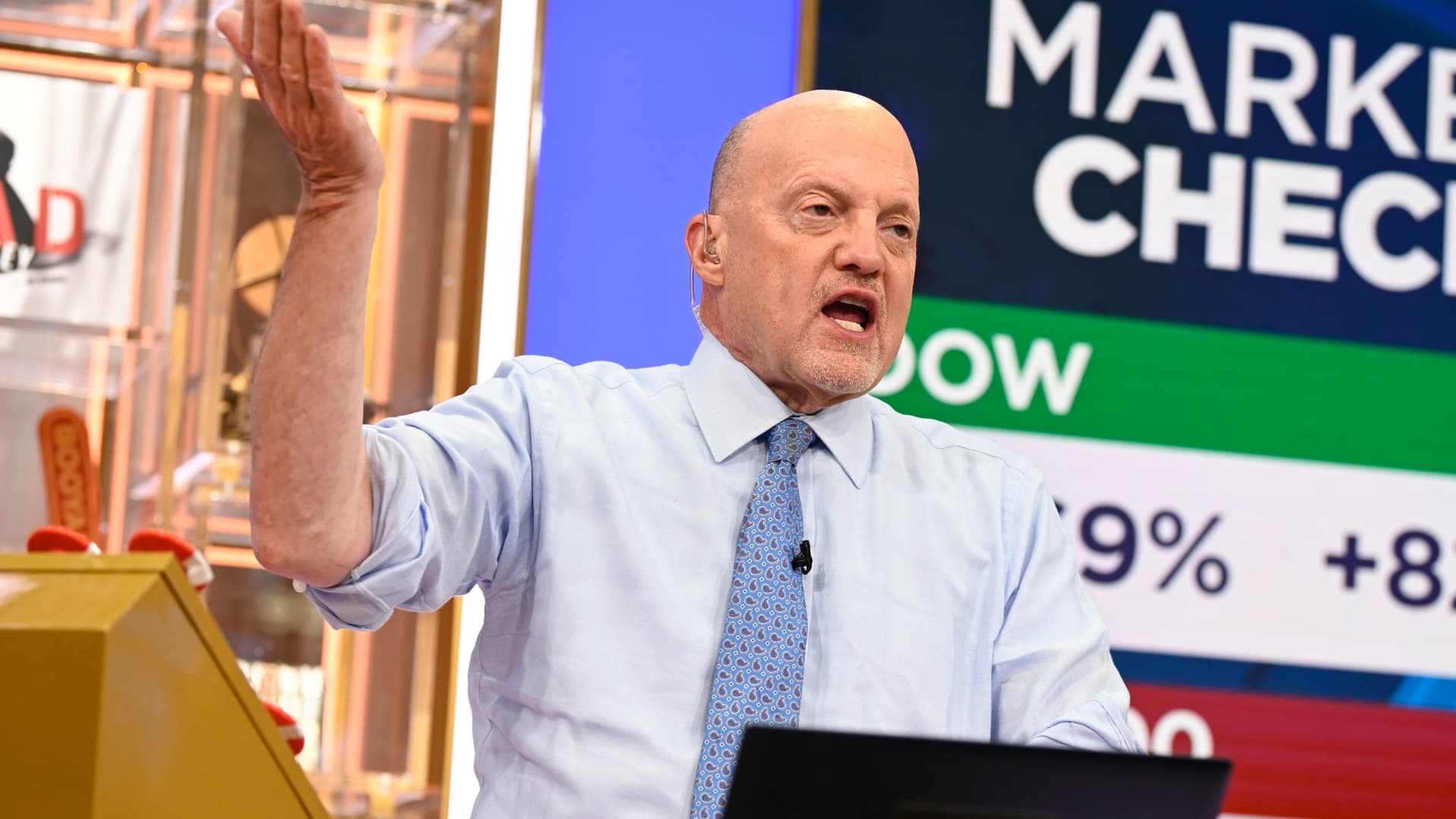
ASML logo is seen at the headquarters in Veldhoven, Netherlands, June 16, 2023.
Piroschka Van De Wouw | Reuters
ASML reported second-quarter earnings and sales that beat forecasts, as interest in artificial intelligence chips drives up demand for the Dutch firm’s critical semiconductor making equipment.
Here’s how ASML did versus LSEG consensus estimates:
- Net sales: 6.24 billion euros ($6.8 billion) versus 6.03 billion euros expected
- Net profit: 1.58 billion euros versus 1.43 billion euros expected
ASML previously forecast second-quarter net sales of between 5.7 billion euros and 6.2 billion euros. Net sales fell 9.5% year-on-year, while net income dropped by 18.7%. This was narrower than the falls logged last quarter.
Net bookings — a key metric for the market, marking orders for ASML machinery — totaled 5.6 billion euros in the June quarter, rising more than 24% year-on-year.
The Dutch firm is one of the most important semiconductor companies in the world, producing tools known as extreme ultraviolet (EUV) lithography machines, which are required to manufacture the most advanced chips.
ASML has previously called 2024 a “transition” year as it expects the semiconductor industry to start to recover after a tough 2023. The company kept its outlook for the full year unchanged. ASML now said it forecast third-quarter net sales of between 6.7 billion euros and 7.3 billion euros.
“While there are still uncertainties in the market, primarily driven by the macro environment, we expect industry recovery to continue in the second half of the year,” ASML CEO Christophe Fouquet said in a statement.
“We see 2024 as a transition year with continued investments in both capacity ramp and technology. We currently see strong developments in AI, driving most of the industry recovery and growth, ahead of other market segments.”
Some of the world’s biggest chipmakers are building new semiconductor manufacturing plants such as Taiwan Semiconductor Manufacturing Co. (TSMC) and Samsung in the U.S.
“The industry expects to be in a cyclical upturn in 2025. As a result, we need to prepare for a number of new fabs that are being built today across the globe. Those fabs will be spread geographically and are strategic for all our customers. They are all scheduled to take our systems,” Fouquet said in a pre-recorded video addressing the company’s earnings.
AI remains a “relatively small part” of ASML revenues, according to Ben Barringer, technology analyst at Quilter Cheviot. “But that’s going to grow very significantly over the next little while,” he told CNBC’s “Squawk Box Europe.”
ASML also faces geopolitical headwinds. Following pressure from the U.S., the Dutch government last year introduced curbs on the export of advanced semiconductor equipment, amid U.S. pressure to cut Beijing off from key chipmaking tools. The measures also impact the ASML offerings, although China has never received an ASML EUV machine.
ASML previously said that export restrictions would impact 10% to 15% of it’s China sales this year.
But China remained a critical part of ASML’s business in the second quarter, accounting for 49% of sales, the same as the previous quarter.
As semiconductor stocks across the board have rallied this year, ASML has also seen its share price lifted 44%.




